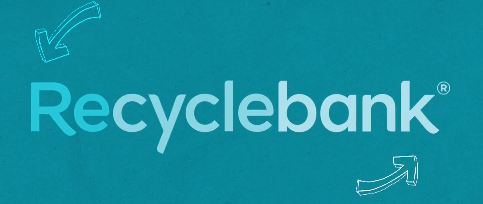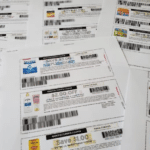
Learn how to go green, recycle your trash, and get coupons for your efforts. What’s not to like about that? Well, some communities aren’t so sure.
Many couponers and earth-friendly consumers know all about Recyclebank, a company that “incentivizes green actions with points that can be redeemed for discounts and deals at local and national businesses.” Anyone can join and earn points on the Recyclebank website, by taking quizzes, reading tips on how to protect the environment or pledging to take “green actions”. Those points can then be used to get coupons for earth-friendly products such as Kashi and Earthbound Farm, or for discounts at participating stores and restaurants. In communities that choose to partner with Recyclebank, participants can earn additional points just by recycling. Recycling bins are fitted with a chip that measures their weight. And the more you recycle, the more points you earn.
But those additional points come at a price – a price that some communities aren’t willing to pay. The city of Palm Bay, Florida is the latest to kick Recyclebank to the curb. Last week, the city council unanimously voted down a proposal to partner with Recyclebank in an effort to boost their city’s recycling efforts. Administrative costs of running the program would have cost city residents an extra 30 cents per month. “Why should I pay 30 cents per month for a government-mandated coupon program?” Florida Today quoted one resident as saying. “Why should I pay an extra 30 cents per month to be incentivized to recycle when it’s something I do quite well?”
“I think maybe 20 percent of the people may take advantage of this, at best,” said Palm Bay’s mayor. “That means 80 percent of the people will be paying for something they aren’t going to be taking advantage of. You could go to Coupons.com and do just as good.”
The city of Twin Falls became the first community in the state of Idaho to partner with Recyclebank early last year. But the partnership soured and the city voted to part ways with Recyclebank last month. Residents there were paying 83 cents a month to support the program. “That just doesn’t seem like a good use of the public’s money,” a city council member told the (Twin Falls) Times-News. Less than half of the city’s eligible residents were enrolled in Recyclebank, and just 17% of them used their points for rewards. “I don’t care for these programs that we put out that everyone has to sign up for and only a certain amount of people are using,” the city’s vice mayor told the Times-News.
One of the most rancorous Recyclebank breakups took place earlier this year in the city of Ann Arbor, Michigan. In 2010, the city entered into a 10-year contract with Recyclebank, paying more than $100,000 a year to the company. A year later, city leaders started questioning what they were getting for their money. By then, about 42% of residents had signed up to earn Recyclebank points, and the city’s recycling rates had not increased as much as anticipated. One city council member told AnnArbor.com that the contract with Recyclebank was “expensive and useless”, and dismissed Recyclebank’s impact on encouraging people to recycle. “People who are dedicated recyclers sign up for RecycleBank, but are already dedicated recyclers.”
“I question if it’s right for Ann Arbor,” the city’s mayor said, a bit more diplomatically. “I think we gave the program a try and I don’t think it’s going to work to the extent it’s worked in other communities.” A Recyclebank official defended the program, pointing out that its coupons encouraged more than $240,000 in spending at local businesses. “This is not about getting people to spend money by spending those coupons,” sniffed the program’s most vocal council critic. “It’s supposed to be an incentive program that increases recycling.” Ultimately, the city council voted to break the contract back in May, and the program officially came to an end in Ann Arbor a week and a half ago.
None of this is really hurting Recyclebank, though, which has plenty of other willing partners. It says cities where it operates have experienced a 10-20% increase in recycling, insisting that “the addition of incentives can be a powerful catalyst to mobilize and sustain green behavior.” Recyclebank operates programs in more than 300 communities across the country, and just signed another deal last week, announcing a partnership with the Florida communities of Osceola County and the City of Tamarac. The program will cost each household an extra 75 cents per month, but a Recyclebank spokesman said customers who participate save an average of $165 a year by taking advantage of Recyclebank’s coupons and deals.
So if you’re not signed up for Recyclebank, but your community is, better check the fine print on your waste-disposal bill to see how much you’re paying for coupons that you’re not using. In the meantime, your neighbors – whose coupons you’re paying for – say thank you for their cheap Kashi.










